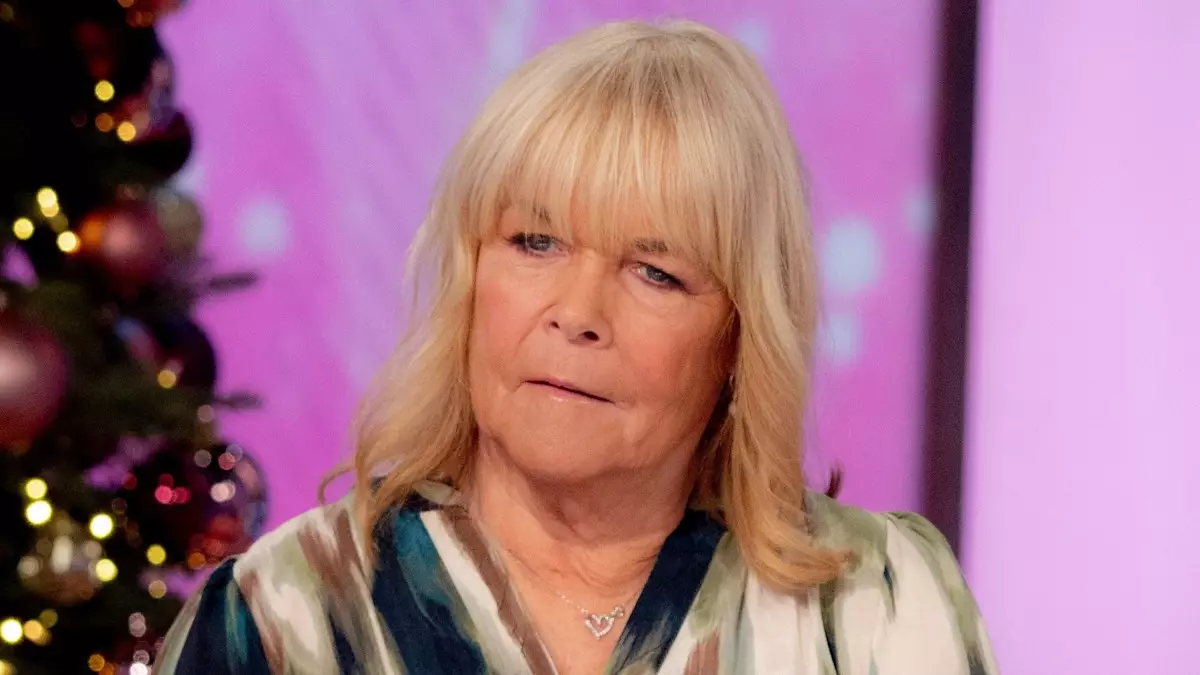Linda Robson, the beloved star of “Birds of a Feather,” recently spoke candidly about the distressing reality of her longtime friend’s battle with dementia. Pauline Quirke’s diagnosis, dating back to 2021, was a secret kept under wraps until its revelation last month. The emotional toll on Robson, who has known Quirke since childhood, is palpable. Their bond, forged at the age of ten, has been a source of strength and joy for both women, making the news all the more heartbreaking.
Robson’s interview at the TV Choice Awards revealed the gravity of the situation. She expressed deep sorrow over the deterioration of Quirke’s mental state, noting that her friend no longer recognizes those closest to her. This devastating reality highlights the relentless nature of dementia, a disease that strips away not just memory, but the essence of the individual. Robson’s candid comparison of dementia to cancer underscores her desperation. While cancer may pose a bleak prognosis, at least it can be treated, unlike the inexorable decline associated with dementia.
The effects of Quirke’s illness have rippled through Robson’s life, instilling a sense of profound loss. As she grapples with the shifts in their friendship dynamic, Robson admits that her reflections on Quirke have become a constant in her thoughts. Despite having a strong support system surrounding Quirke, including her husband and children, Robson reveals that the Pauline she cherishes is no longer present. The fleeting moments of recognition during their FaceTime chats serve as painful reminders of what once was.
Robson’s hope of seeing Quirke soon offers a glimmer of optimism in this bleak scenario. Even the simplest actions, like a smile, bring fleeting joy. However, the inevitability of Quirke’s decline looms over every interaction. This aspect of dementia—where brief moments of lucidity provide temporary solace amid an overwhelming sadness—reflects the emotional struggle faced by caregivers and loved ones alike.
Despite the shattering nature of Quirke’s illness, Robson remains unwavering in her commitment to honoring her friend’s legacy. Her declaration that she would not participate in future episodes of “Birds of a Feather” without Quirke reinforces the idea that the show, once a source of joy and laughter, can no longer be what it once was. Instead, Robson expresses a desire to create a tribute that acknowledges Quirke’s significant contributions to entertainment and society.
Quirke’s husband, Steve Sheen, elaborated on her profound impact on both the film and television industry and charitable circles. His recognition of her unwavering dedication highlights the compassionate spirit she embodies. The Pauline Quirke Academy of Performing Arts (PQA) stands testament to her legacy, fostering young talent and nurturing self-confidence in aspiring performers.
As Robson advocates for her friend, she also offers poignant advice for others navigating similar situations with their loved ones. She emphasizes the importance of staying strong and surrounding individuals with a substantial support system. Quirke’s family remains vital during this challenging time, embodying the love and compassion necessary to navigate the uncertainties of dementia.
Sheen’s request for privacy speaks volumes about the need for family time when faced with such an emotional crisis. Quirke deserves the space to embrace her family without the weight of public scrutiny. After all, her contributions and vitality should not be overshadowed by her current diagnosis.
In the end, Robson’s updates about Quirke serve as a reminder of the fragility of life and the shattering consequences of diseases like dementia. The inherent sadness encapsulated in Robson’s words echoes a collective mourning—the loss of a vibrant personality, a beloved friend, and an influential figure in the artistic community. As we observe these developments from afar, we are compelled to reflect on the lasting impact Quirke has made on countless lives, an indelible mark that remains even as she battles her condition.

Leave a Reply